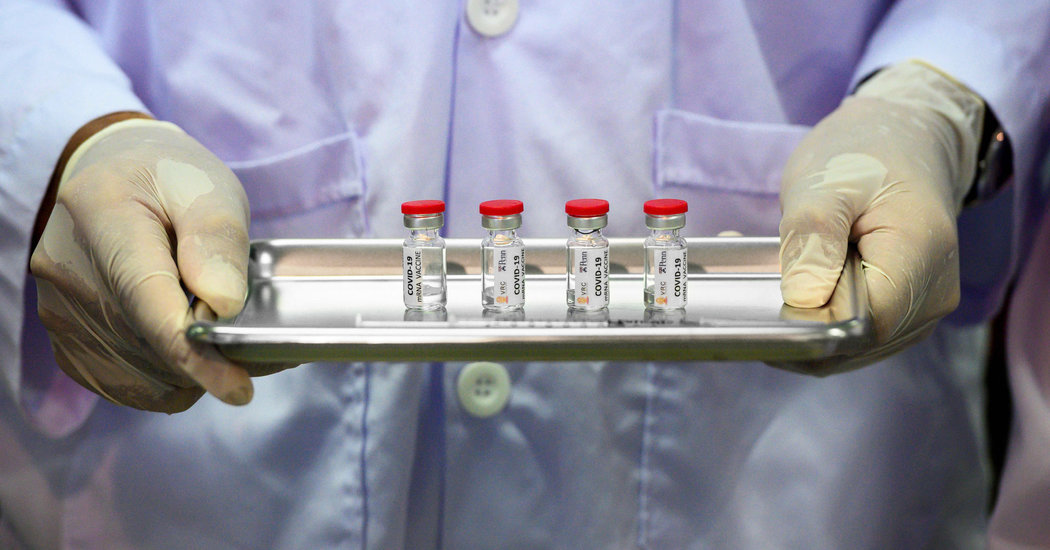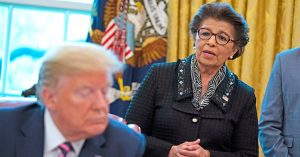The severity of the Covid-19 pandemic has prompted serious consideration of a type of research — challenge trials — that might ordinarily be dismissed as too risky.
Challenge trials intentionally expose healthy people to a pathogen to quickly learn more about the disease it causes or to gain early insight into whether a new vaccine or treatment works. These studies can be done ethically, but are not typically done for emerging viruses we know so little about, and for which there are no proven cures.
Rather than rushing to greenlight challenge studies to test vaccines for the novel coronavirus, we have to ask how likely they are to get us meaningfully closer to ending this pandemic. In the meantime, we can start preparations while assessing what it will take for their potential benefits to be realized.
In a traditional vaccine trial, volunteers receive either an experimental or placebo vaccine and then researchers watch to see who becomes infected. But determining whether a vaccine works with this method can take a long time and many volunteers. It’s hard to determine who is protected by the vaccine and who simply avoided exposure to the virus. A challenge trial can work faster, with fewer volunteers, because researchers control exposure.
Challenge trials have a long and complicated history that includes some unethical research. Over the past several decades, however, strong ethical and scientific standards and careful oversight have enabled many challenge trials involving diseases such as malaria, typhoid, cholera and influenza to be conducted safely. Challenge studies have been instrumental in licensing certain vaccines.
Until recently, the ethical consensus had been that challenge trials should be limited to diseases where enough is known to effectively rule out the chance of serious adverse outcomes or where a cure is available — which is not true of the novel coronavirus. Because challenge trials might offer important benefits that cannot be achieved in any other way and given the urgency wrought by disease outbreaks of this nature, that consensus is being reconsidered. That’s why, since the Zika virus outbreak in 2016, we’ve been part of an international, interdisciplinary team working to develop a revised set of ethical conditions for using challenge trials to respond to emerging infectious diseases.
There’s been growing advocacy for challenge trials to address the Covid-19 pandemic, even from members of Congress. Thousands of people around the world say they’d be willing to enroll. The World Health Organization recently advised that if there was enough social benefit and other conditions were satisfied, it might be possible to justify deliberately exposing young, healthy volunteers to the novel coronavirus even before a cure is developed.
Those advocating challenge trials with the novel coronavirus claim that because those trials could speed development of vaccines, and because the risks for most young, healthy participants would not be excessive, challenge trials should be conducted. But how likely is it that challenge trials would meaningfully accelerate vaccine rollout?
Both the World Health Organization and a federal task force have narrowed promising candidates from a pool of over 100 to just over 10, public-private partnerships are enabling innovative collaboration and traditional vaccine testing is moving forward with unprecedented speed. One company recently reported that its vaccine was able to stimulate immune response in the first eight people who received it and they plan to start the final stage of testing as soon as July.
Challenge trials will likely take at least several months to start, as researchers work to identify and purify the viral strain, determine dosing and obtain regulatory approvals. Additionally, scientists and regulators must decide the role coronavirus challenge trials might play within ongoing vaccine development efforts and what additional trials will be necessary to demonstrate safety and efficacy for marketing approval.
This matters because testing vaccines in low-risk volunteers deliberately infected with the virus may not reveal enough about how the vaccine will work in different kinds of people at risk in the real world. Even after a safe and effective vaccine is developed, more steps are needed to successfully implement vaccination programs. Overall, it’s not clear that conducting challenge trials would, in fact, be likely to get a vaccine to the public more quickly.
Ultimately, challenge trials could be an important tool against the novel coronavirus, especially considering their other possible benefits, such as determining when someone has developed immunity. But given the stakes of exposing volunteers to potentially fatal risks, it would be a mistake to rush the implementation of challenge trials without adequately considering what it will take for them to make a difference.
Although it would be premature to endorse these trials while questions about their value remain so unclear, we think it is worth laying the groundwork now.
All this attention to challenge trials of the novel coronavirus might give the impression that they’re ready to launch. They aren’t, and not just because of ethical concerns. Researchers need to produce challenge strains, identify suitable trial sites, prepare secure research facilities and develop ethical protocols — and should begin that work now. Researchers and funders should discuss barriers, concerns and solutions with the public, regulators and public health officials who will lead vaccine rollout.
These preparations are not themselves a green light. But they will enable a clearer picture of the risk and value of coronavirus challenge studies once they are ready to begin, to inform decisions about whether and how to deploy them. An independent expert panel should then be engaged to make those decisions, ruling out excessively risky or insufficiently valuable trials, insulated from potential biases from having invested in preparation and public pressure to proceed.
We have to know that volunteers were not exposed to risk in vain. Public trust in vaccines and research depend on it.
Seema K. Shah is a professor of medical ethics at Lurie Children’s Hospital of Chicago and the Department of Pediatrics at Northwestern University’s Feinberg School of Medicine. Holly Fernandez Lynch is an assistant professor in the Department of Medical Ethics and Health Policy at the University of Pennsylvania’s Perelman School of Medicine. Franklin G. Miller is a professor of medical ethics at Cornell University’s Weill School of Medicine.
The Times is committed to publishing a diversity of letters to the editor. We’d like to hear what you think about this or any of our articles. Here are some tips. And here’s our email: [email protected].
Follow The New York Times Opinion section on Facebook, Twitter (@NYTopinion) and Instagram.



















